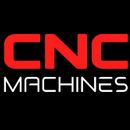10 Careers That Will Be Replaced by AI and Automation by 2035 – and Why It’s Actually a Good Thing
AI and Automation Careers 2035

10 Careers That Will Be Replaced by AI and Automation by 2035 – and Why It’s Actually a Good Thing
As AI and automation become more integrated into everyday life, concerns about job displacement are rising. However, automation doesn't just eliminate jobs—it transforms them, enhances user experiences, boosts efficiency, and drives economic progress. Here are ten careers likely to be replaced by 2035, and why this shift could be better for everyone.
1. Data Entry Clerks
- Why AI Wins: AI can process data faster, more accurately, and 24/7 without breaks or errors.
- User Experience: Less data-entry mistakes mean faster service, accurate billing, and fewer headaches.
- Economic Impact: Businesses reduce overhead and can reallocate resources to innovation and customer service.
2. Telemarketers
- Why AI Wins: AI-powered systems can personalize outreach and adjust scripts in real-time based on consumer behavior.
- User Experience: Fewer annoying calls, more relevant product offers, and seamless customer interaction.
- Economic Impact: Reduces wasted marketing spend and increases conversion rates through AI-optimized targeting.
3. Customer Service Representatives
- Why AI Wins: Chatbots and virtual agents handle thousands of queries simultaneously, with instant responses.
- User Experience: Instant support, 24/7 availability, and consistent answers to common questions.
- Economic Impact: Saves billions annually in support costs while improving customer satisfaction metrics.
4. Receptionists
- Why AI Wins: Automated check-ins, virtual kiosks, and smart scheduling systems streamline front desk tasks.
- User Experience: No waiting in line, faster check-ins, and instant visitor recognition.
- Economic Impact: Efficient management of high-traffic areas like hospitals and office buildings, reducing staffing costs.
5. Cashiers
- Why AI Wins: Self-checkout machines and automated payment systems offer speed and convenience.
- User Experience: Shorter lines, mobile payments, and a more seamless shopping experience.
- Economic Impact: Enables stores to operate efficiently with fewer employees, passing savings onto consumers.
6. Warehouse Workers
- Why AI Wins: Robotic systems handle sorting, packing, and lifting more safely and efficiently than humans.
- User Experience: Faster delivery times and fewer mistakes in order fulfillment.
- Economic Impact: Amazon and others already save millions with robotic warehouses, lowering costs for goods and shipping.
7. Drivers (Taxi, Truck, Delivery)
- Why AI Wins: Autonomous vehicles reduce traffic accidents and optimize fuel use.
- User Experience: Safer roads, lower fares, and faster deliveries.
- Economic Impact: Trillions saved globally in accident costs, fuel, and logistics efficiency.
8. Fast Food Workers
- Why AI Wins: AI can cook, assemble, and serve food with precision and hygiene.
- User Experience: Faster service, consistent food quality, and better hygiene.
- Economic Impact: Lowers operating costs for restaurants and allows 24/7 operation in high-demand areas.
9. Basic Content Creators
- Why AI Wins: Generative AI tools can produce product descriptions, social media posts, and basic articles instantly.
- User Experience: On-demand content, better personalization, and reduced human bias.
- Economic Impact: Allows businesses to scale content production while reallocating creatives to high-level tasks like strategy.
10. Junior Administrative Roles
- Why AI Wins: Scheduling, email sorting, and document management can be handled automatically.
- User Experience: Faster turnaround on requests and fewer delays in workflows.
- Economic Impact: Streamlines organizational operations, freeing up skilled workers to focus on decision-making and strategy.
The Silver Lining: Why Automation is Better for Everyone
- For Consumers: Expect faster service, fewer errors, and 24/7 support.
- For Workers: Jobs lost to automation will be replaced with roles in AI oversight, programming, UX, data analysis, and more.
- For the Economy: Increased productivity, lower costs, and higher GDP growth through automation-driven efficiency.
Want a smarter way to get work done or build digital tools? Try the Website Generator GPT — 🚀 it builds full websites with AI in seconds!


